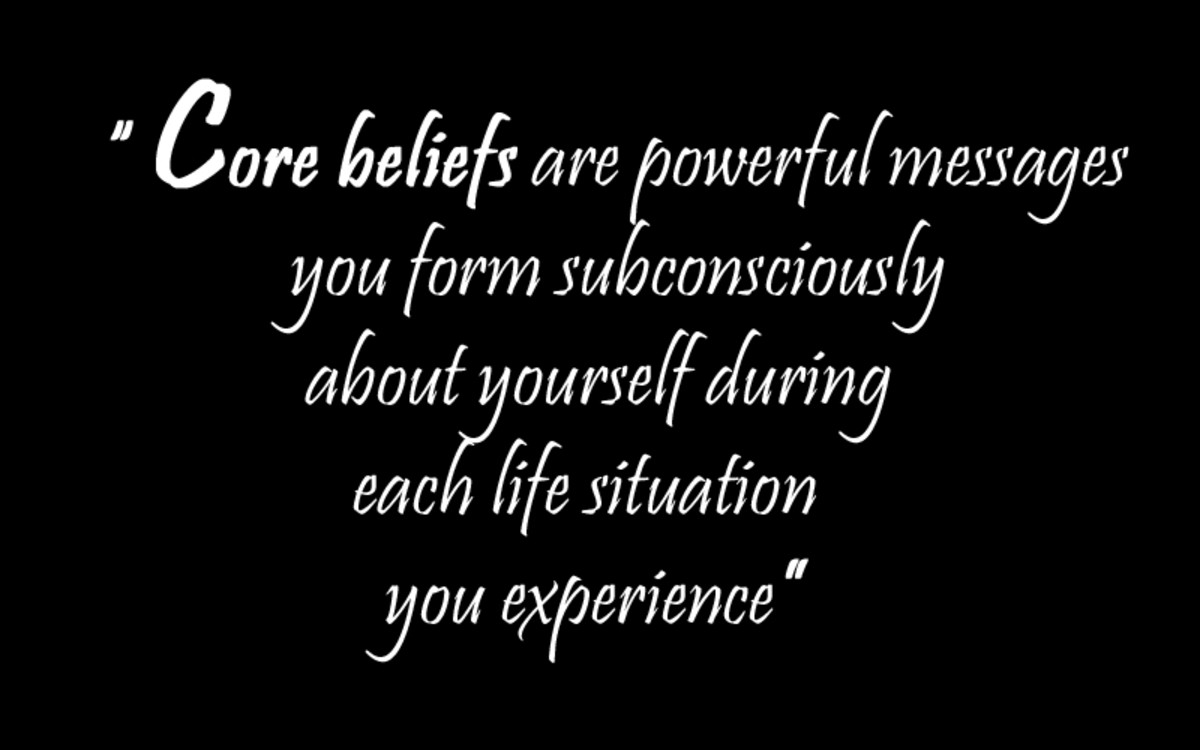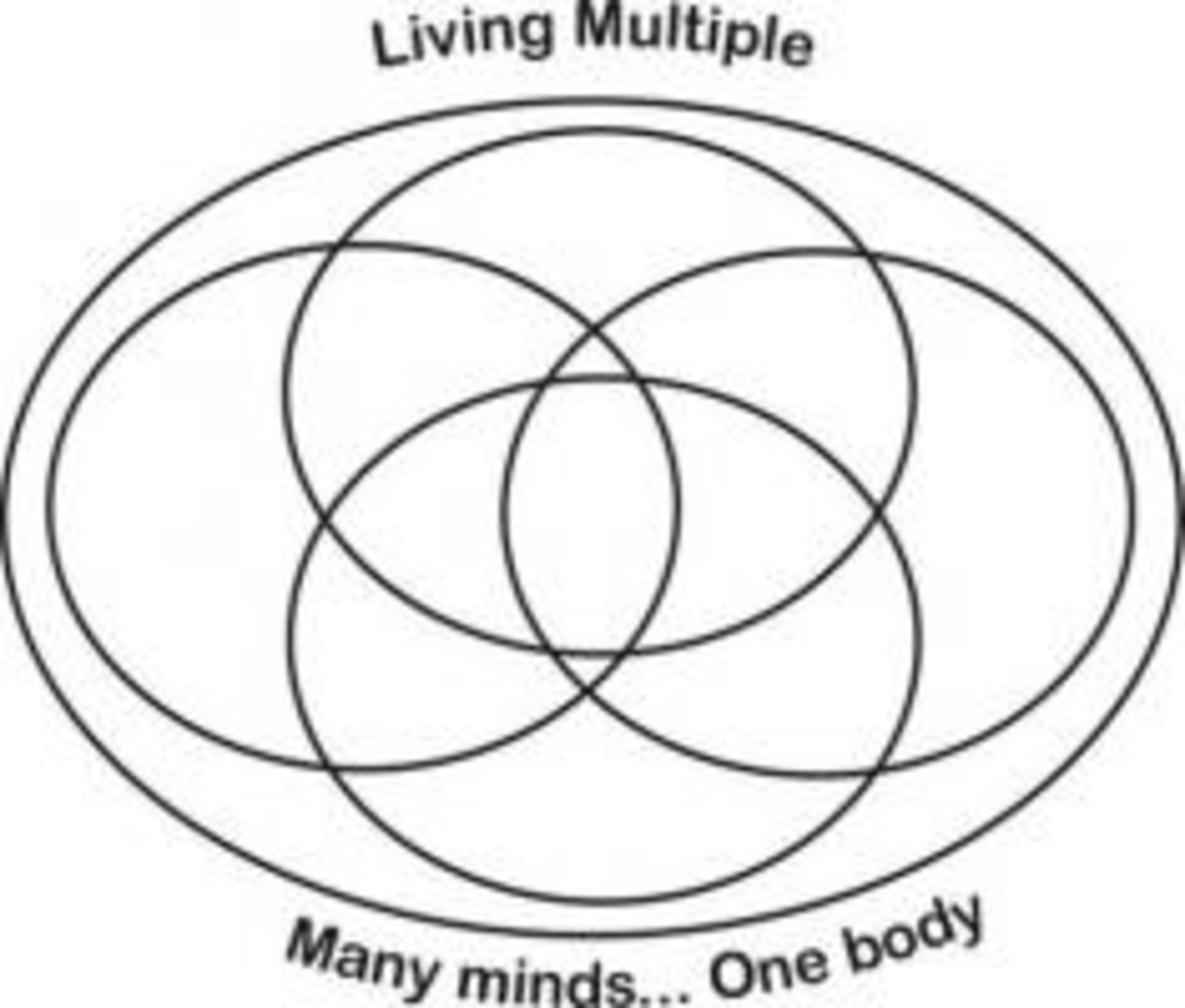- HubPages»
- Health»
- Mental Health»
- Emotions
Act Don't React: Learn to Control your Emotional Triggers and Buttons
Ever have your buttons pushed?
You know: someone comes along and does or says something, and you react without thinking. Maybe you get angry and snap at them. Or your feelings are hurt. even though whatever they said or did wasn't that bad. Perhaps they get you to agree to something you had no intention of agreeing to.
Now imagine that you had the ability to step back and consider what you want to do. How you desire to act, and then make a choice. You do. This article will help you with exactly that.
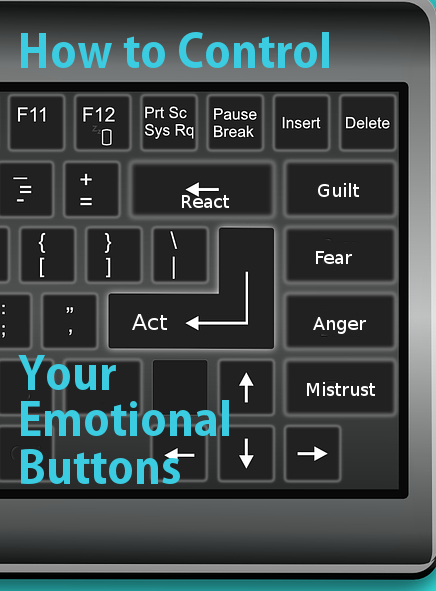
It will give you tools for releasing fears and frustrations, handling your emotions, relieving stress and allow you to communicate in a healthier, more powerful way.
Whether your challenge is with a family member, a friend, co-worker or boss, or even someone you've just met on the street, understanding your triggers and buttons can help. And by doing so you can understand how to take action and respond rather than reacting.
You'll be able to take command of the situations you face and the emotions you feel and will aid your relationships with the people around you.
The techniques here are those I've learned in two decades of working as a minister, spiritual counselor and psychic, as well as my studies of ethical hypnosis and NLP (Neuro Linguistic Programming).
Contents
What Triggers Are and How They Keep You Safe
How Your Buttons Harm You and Prevent Healthy Change
Getting to Understand Your Buttons So That You Can Cope With Them
Ways You Get Talked Into Things You Don't Want
How to Turn an Enemy Into a Friend
Keep an Action Reaction Journal
Battling the Ghosts of the Past
Video: Gain Confidence and Reduce Stress and Worry With Self Hypnosis
What's a Trigger?
A trigger, also sometimes called an "anchor" in hypnosis, is anything that produces an automatic conditioned response. When I refer to "buttons" I'm speaking of those anchors that produce a negative response that isn't in keeping with the more resourceful and enlightened way you'd like to handle the situation.
How Triggers and Buttons Work
I'm sure you've heard of Pavlov and his experiment with the dog and the buzzer. When he pushed the buzzer bell, the dog, conditioned that the sound meant food, would begin to drool.
In the animal world, triggers perform powerful functions of keeping the animal safe and healthy. When a branch cracks, the deer knows to look for a potential predator and bound away. The scent of a kill tells the hyena that there may be food for the taking. The sight of a hawk's shadow will cause a rabbit to freeze or take cover.
As animals ourselves, we are predispositioned to react to anything that triggers our flight or fight instinct.
It's almost impossible to grow up without having triggers. These can be a visual stimulus, such as a stop sign at a corner, or the sight of a raised fist. They can be auditory: A word or phrase that reminds you of something your parents used to say. The sound of a baby crying, or the growl of a dog are also auditory triggers. They can be kinesthetic, or touch based, such as a hot stove which causes you to jerk your hand away, or the feel of a friend's hand in yours.
One of the most powerful triggers is our sense of smell, which can bring back memories and the feelings associated with them in an instant.
Any strong experience can create a trigger for memory and the emotions that go along with it.
Some of these are useful in keeping us safe, such as the stop sign, or the sight of a hot burner.
The problem here, is that many of our automatic reactions might not be the healthiest or most effective response. to any particular situation. This is especially true when it comes to the challenging world of dealing with other humans.
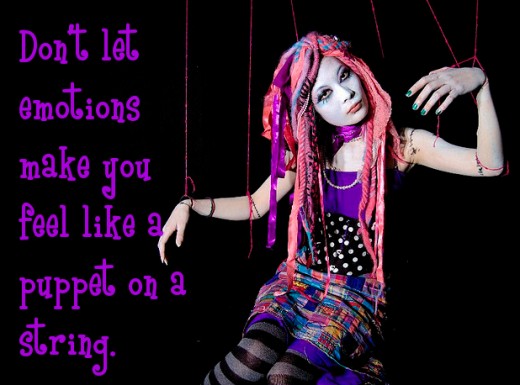
How Our Buttons Hurt Us
Unless your parents were very lenient, clueless or subscribed to unorthodox (and gentle) child-rearing practices you've probably been scolded at least once in your life.
How did you feel? Did it make you angry? Feel hurt? Scared? Depressed? Unloved? Unappreciated? Some or all of those?
What did you do? Did you cry? Run away? Yell back? Sulk? Scheme to get even? Something else?
Now imagine that your boss or spouse or friend says something in the same tone your parents used to use when they scolded you? How will you feel? How are you likely to react?
Any time we allow our buttons to control our reactions or emotions, we prevent ourselves from acting in more powerful, elegant ways. Ways that may get us what we want to have, keep peace in our households or our relationships and otherwise make our lives happier and more successful.
So what can you do to get rid of your buttons and allow yourself to act rather than react?
Knowing Your Buttons
Just understanding what your buttons are and where they live is a powerful tool. The more you're aware of them, the more options you have to act in a different manner . Sit down and ask yourself some questions.

Someone important to you is angry with you and starts an argument. What's your most likely response?
How Do You React to Stress or Arguments?
Some people get angry. If someone raises their voice, they raise their own. Others run away. Or turn on the silent treatment, escape into a book or television, cry or use some other way of confronting or coping with the situation. You might laugh. You may become sarcastic.
Different types of stress may elicit different responses. A raised voice may make you angry. Seeing someone else's tears might make you feel guilty, or angry or disgusted. The suggestion that your work isn't up to par might make you work harder, or cause you to give up, or make you plot to get even.
Buttons Don't Have to be Aggressive to Make You React
Think of a time when someone got you to do something you didn't want to do, in a way that wasn't angry or aggressive, but that made you feel uncomfortable in some way.
Perhaps you got "voluntold" to do something for your church or other organization that you didn't really have time for. Maybe your boss talked you into taking on overtime Or the salesperson who talked you into purchasing a gift you couldn't afford. Or that person you didn't want to give your phone number to, but somehow they managed to get it from you.
What did they do or say to get you to do that thing you didn't want to? What emotions did they appeal to?
These are buttons too. Knowing what actions and emotions you react most strongly to will help you in stepping back from those situations and deciding what you want to do.
How Understanding Buttons Turned Antagonism into Friendship
Some years back I had a couple of metaphysical students that weren't getting along well together.
"Amy" was one of my student teachers. She had a good heart, but a lot of challenges, including being clinically bipolar. "Joan" was one of my new students, a sweet person, but also with some social challenges. She was a laser scientist and, possibly because of her work environment was matter of fact, clipped and swift.
For the first few months after Joan joined our group, there were problems between Amy and Joan. The majority of them were on Amy's side. One day Amy came to me, saying, "She drives me crazy! I can't stand working with her! Make her go away.
After some meditation on the two of them, and how I could get them working together, I went back to Amy. "Joan has a very sharp voice," I said. "It's sort of, rat-a-tat-tat. Almost like gunfire."
"Yes! That's exactly it!" Amy wailed. "It makes me nuts."
"Who does it remind you of?"
Amy gasped. "Oh my gosh! She reminds me of my Dad. Exactly! He used to lecture me the same way."
We went through a brief discussion of how to use submodalities (which I'll explain in a few minutes). Amy went home, meditated and worked through some of her issues. Within a few weeks, the two formed a strong friendship and a concern for each other, that to my knowledge persists to this day.
Keep a Reaction and Action Journal
It can help to spend some time journaling about your buttons. You might even want a separate notebook for this.
What situations do you remember from your childhood that had a strong negative impact on you? What things made you feel scared? Angry? Ashamed? Hurt in other ways?
How did you react in that situation? Do you still react in a similar manner to similar situations?
How would you like to act instead?
If you learned to react in a different way, what was the situation that caused that? How did you feel after making that change?
Any time you have an encounter where you react in a negative way to a stress or trigger--or choose to act in a positive way--add that to your journal.
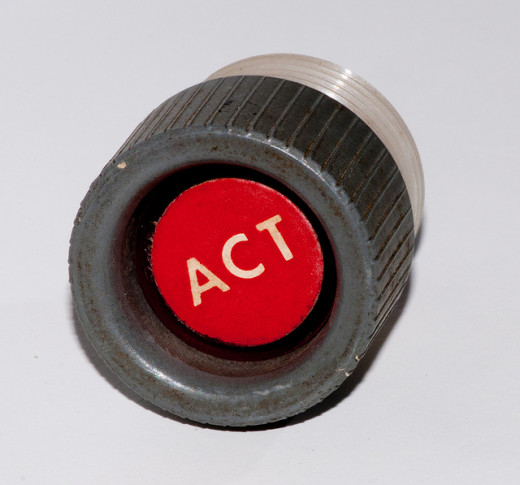
Action is a Choice
"I didn't have a choice."
"They made me do it."
"There wasn't anything else I could have done."
Do you catch yourself saying any of the above?
When we tell ourselves that we don't have a choice we take away our own freedom.
You can tell yourself that someone "made you" do something, but unless they've got a gun to your head (and even sometimes in that situation) there's always another solution.
Realizing that you DO have a choice is the first step in making a change for the positive.
Then take a deep breath, count to 10 and ask yourself how you WANT to act in the situation.
How I Shut Down an Emotional Abuser by Choosing a New Action
My former husband was an anger junkie and emotionally abusive. His way of handling any situation he didn't like was to rant and rave, throw dishes and break things. And he got angry a lot. Just leaving the cap off the toothpaste (even if I'd been called away by the phone ringing, or some other important distraction) was enough for him to get into a full blown rage that could end up with us fighting for two days to a week straight.
I didn't handle the situation in the most effective way. My answers were to yell back, cry or stomp out of the room.
One day my ex (and do note the ex part) started raving about something or other that ticked him off. The difference was that I'd been working on my own spiritual growth for some time, and was now beginning to study hypnosis and NLP. I knew that there were more elegant ways of handling his rages, and that I could choose to use them.
So when he started his rant, I looked him in the eye and said, "You're right."
I could see him stop for a moment and blink. Then he started working up into a froth again.
"You're right," I said when he paused for breath.
He startled yelling again.
I waited. When he again paused to catch his breath I repeated, "You're right."
His mouth gaped. His eyes got huge. "You're...you're just not going to argue with me are you?" It felt like his brain had splattered and gone "spluck" * on the floor.
"That's right, I'm not," I replied, keeping my voice calm and measured.
Unlike most of our fights/his rages, that one lasted only a couple hours. It didn't fix our marriage and he did manage to work up steam and rant for a while longer, but it was nothing compared to what I'd faced in the two decades of our marriage.
What it taught me is that choosing a different course of action means that people will react to you in a new way. Even though I've moved on from a that unhealthy relationship, that experience empowered me to become more confident. I learned that I could change the way I acted and thereby change the way others reacted to me.
* "Spluck" is a "technical term" for a noise somewhat like the sound of mashed potatoes or oatmeal being thrown against the wall.
The Person or Situation You're Reacting to Might Not Be the One In Front of You
Sometimes we expect the person we're communicating with to react in a similar way to someone in the past. It's almost as if we're battling ghosts. I still have this challenge with my present-and-forever husband. I have to remember that he is NOT my ex. Just because my ex would have acted in or felt a particular way in a situation, that it doesn't mean my beloved will.
Many times. the reason people or grate on our nerves (as in the case of Amy and Joan) or make us angry is because they say or do something in a similar manner to someone you've known before. If you find someone especially irritating,
In some cases it might be a reflection of something you don't like about yourself. Do some soul searching and ask whether you do the same thing.
If not, it's possible that you 're reacting to someone in your past, rather than the person you're dealing with.
Self Hypnosis for Confidence and to Reduce Anxiety and Stress
How to Make Situations and People Less Irritating--Playing With Submodalities
Modalities refer to those senses I mentioned before. In this case I'll be focusing on the 3 major senses used in NLP: sight, sound and touch (the last of which can include distance).
Submodalities are the way those modalities can be tuned. For example, just like turning down the sound on your TV set, you can do the same with the sound in your imagination.
Take a moment and imagine the situation or the person that bothers you.
Now view the scene as if you were standing outside of it and watching it.
Imagine that you have controls such as you might have on a TV remote.
Make the "picture" smaller, and see how that affects how you feel.
Bring the visualization back to normal. (But with yourself still watching it from outside the scene.)
Now make the picture dimmer, and take note of how that affects your feelings.
Bring it back to normal again. (Again with you still watching it from outside.)
Now experiment with making the visualization:
- Black and white.
- Fade the color.
- Make the picture blurry.
- Stop the motion and make it a still picture.
- Visualize a frame around the picture. Then hang the picture on a wall.
- Put the picture in a storybook.
- Make the picture into a cartoon.
- Turn down the volume.
- Make the sound softer.
- Make the sound silly as if a cartoon character were saying it.
- Make the sound blurry, as if you were hearing things underwater
- Add static to the sound as if you were listening to it with a bad connection.
- Slow the sound down.
- Turn the sound off all together.
- Move the image farther away. (Try this a few times, making it further and further away.)
After each step, take note of your feelings, then bring your image back to normal. Keep yourself watching it from outside you.
Did any of those work better for you than others?
When you have found the ones that work best for you, go through the process again, using the ones that felt strongest to you. This time, don't return the picture to normal between each change.
A Video That Explains NLP & Submodalities
Taking Control
So take time to consider your buttons. Remember that you have a choice of actions. Decide to choose that more enlightened and powerful response. Work with the situations and buttons that create uncomfortable emotions. The more you do this, the more you'll have control and power over your emotional life, the ability to have calm. control and graceful, elegant ways to make your relationships healthier.
Photo Credits
Thank you to the following folks for the use of their photos:
Via Flickr by Creative Commons Share Alike:
Goth Marionette Jez Kabanov, modified by Lionrhod
Stress Bunny Miki Yoshihito
Act Button Dwight Sipler
More Relationship and Self Help Articles
Getting a Round Tuit: Creative Ways of Dealing with Procrastination and Motivating Yourself
Practical advice to get organized, empower yourself to get things done, and make time to relax.
© 2014 Lionrhod

